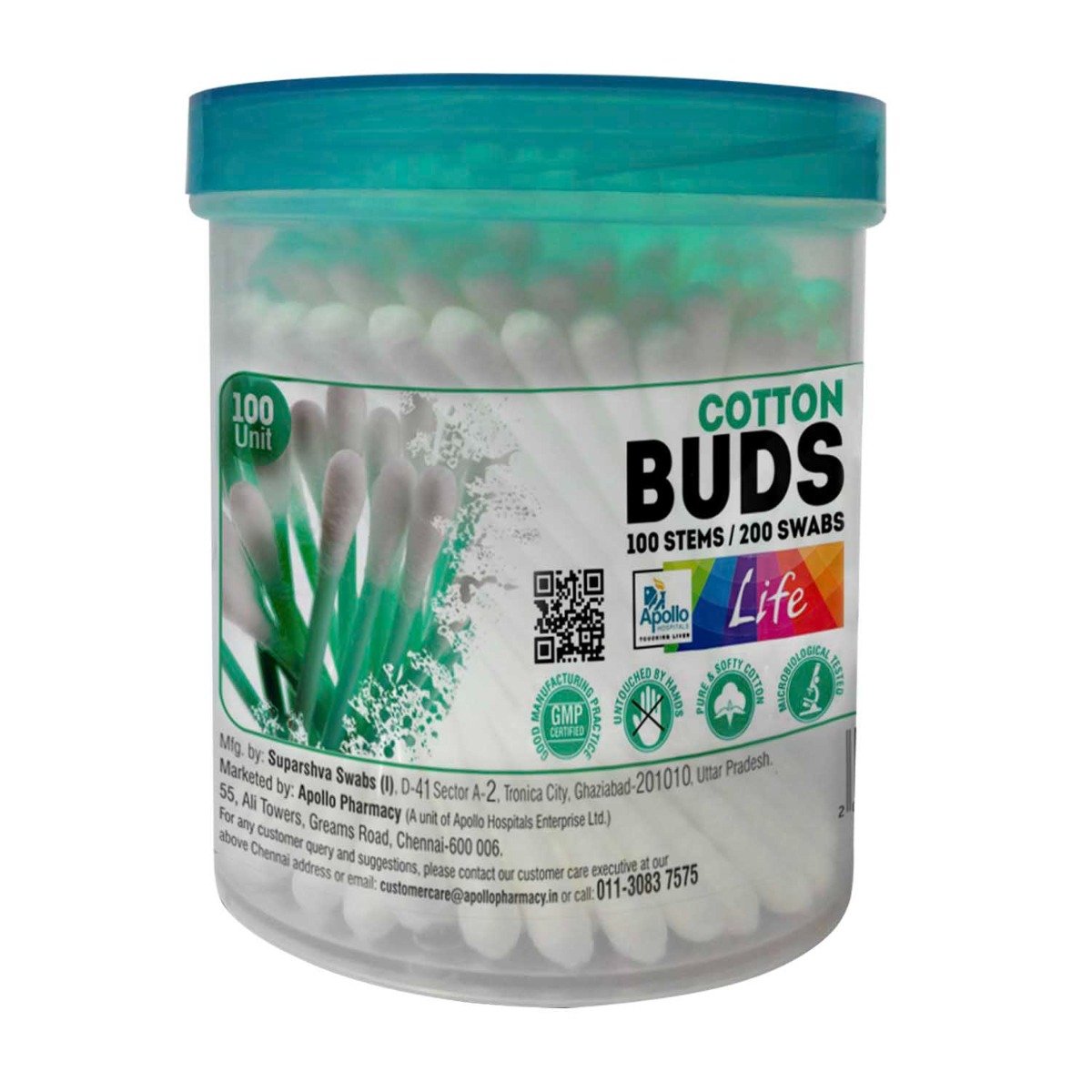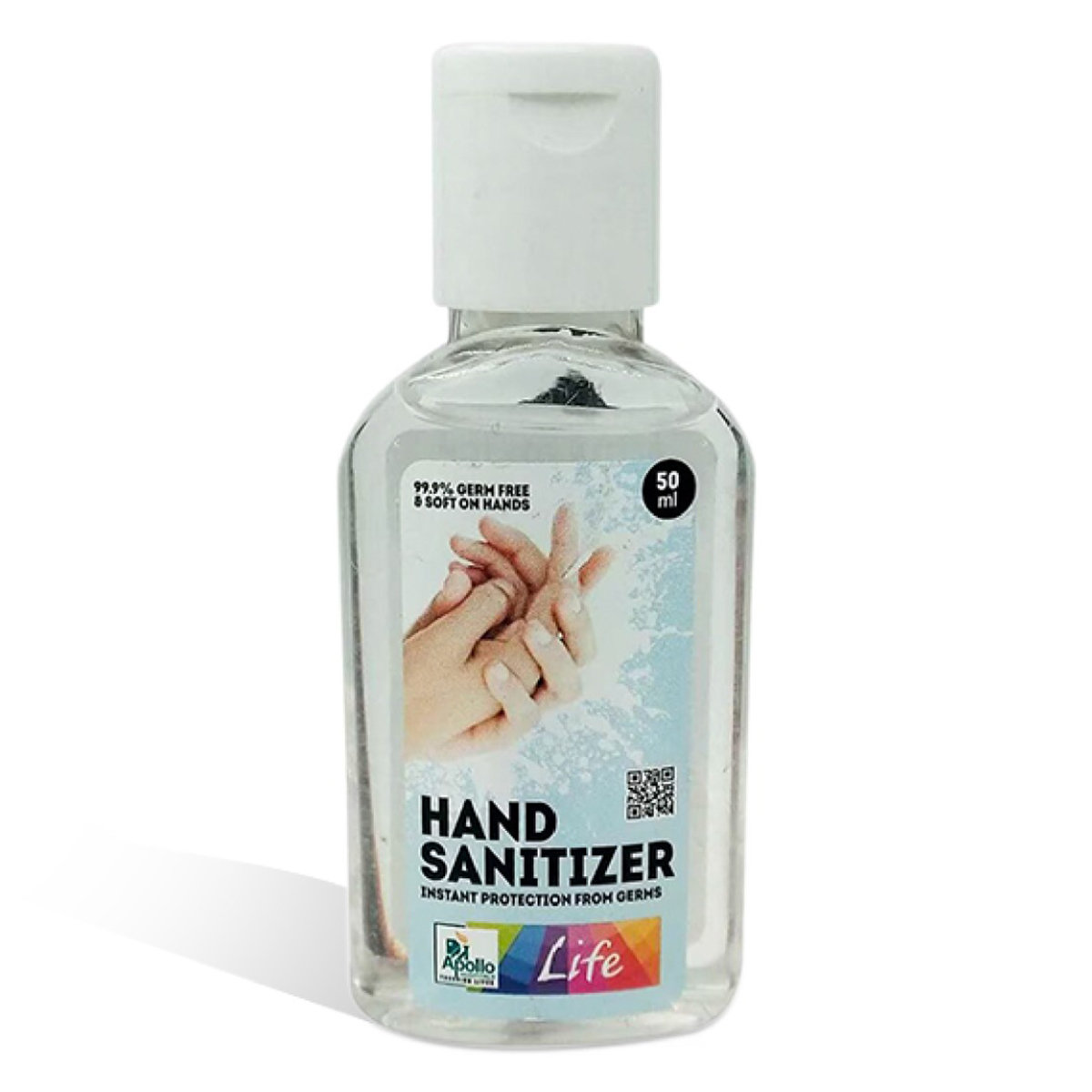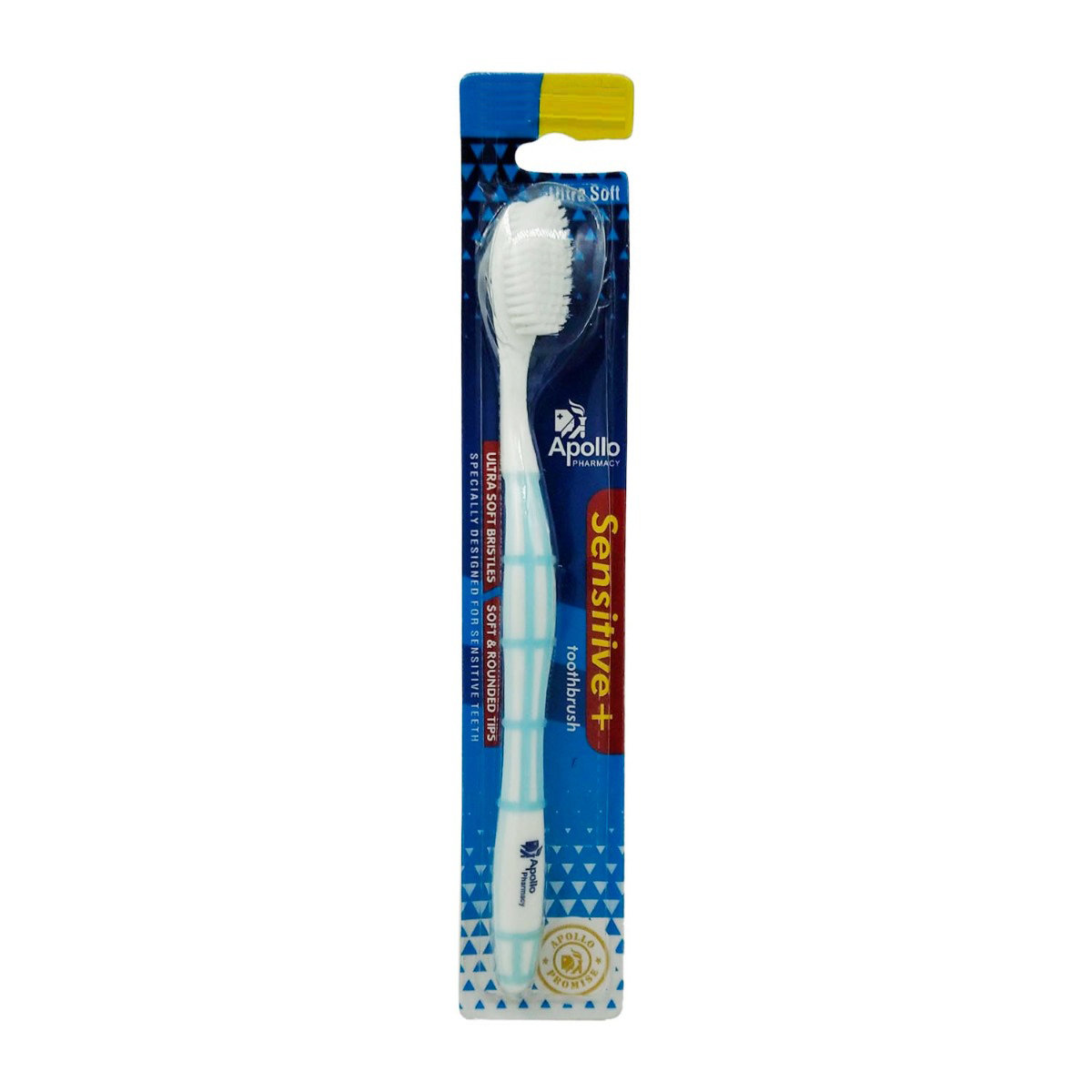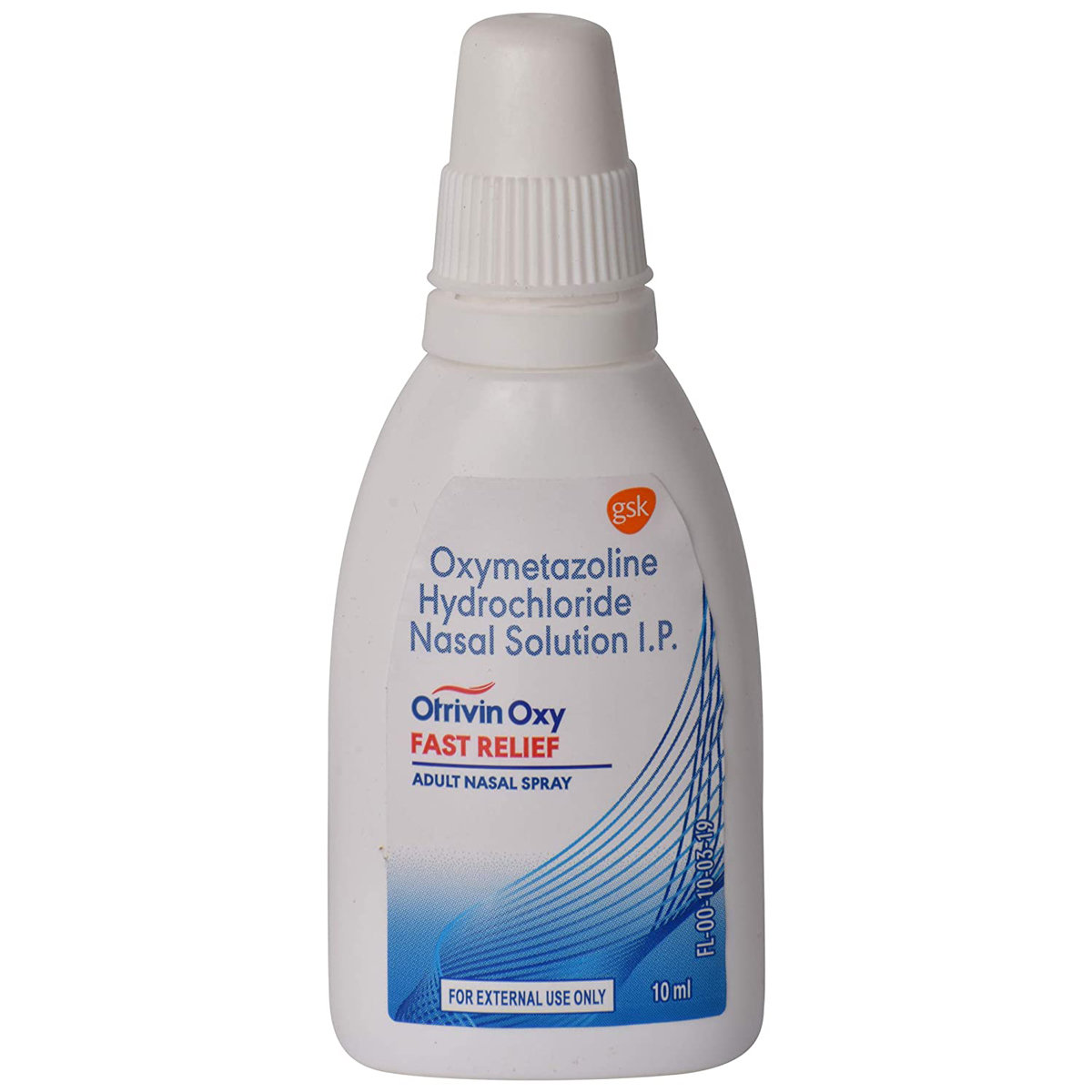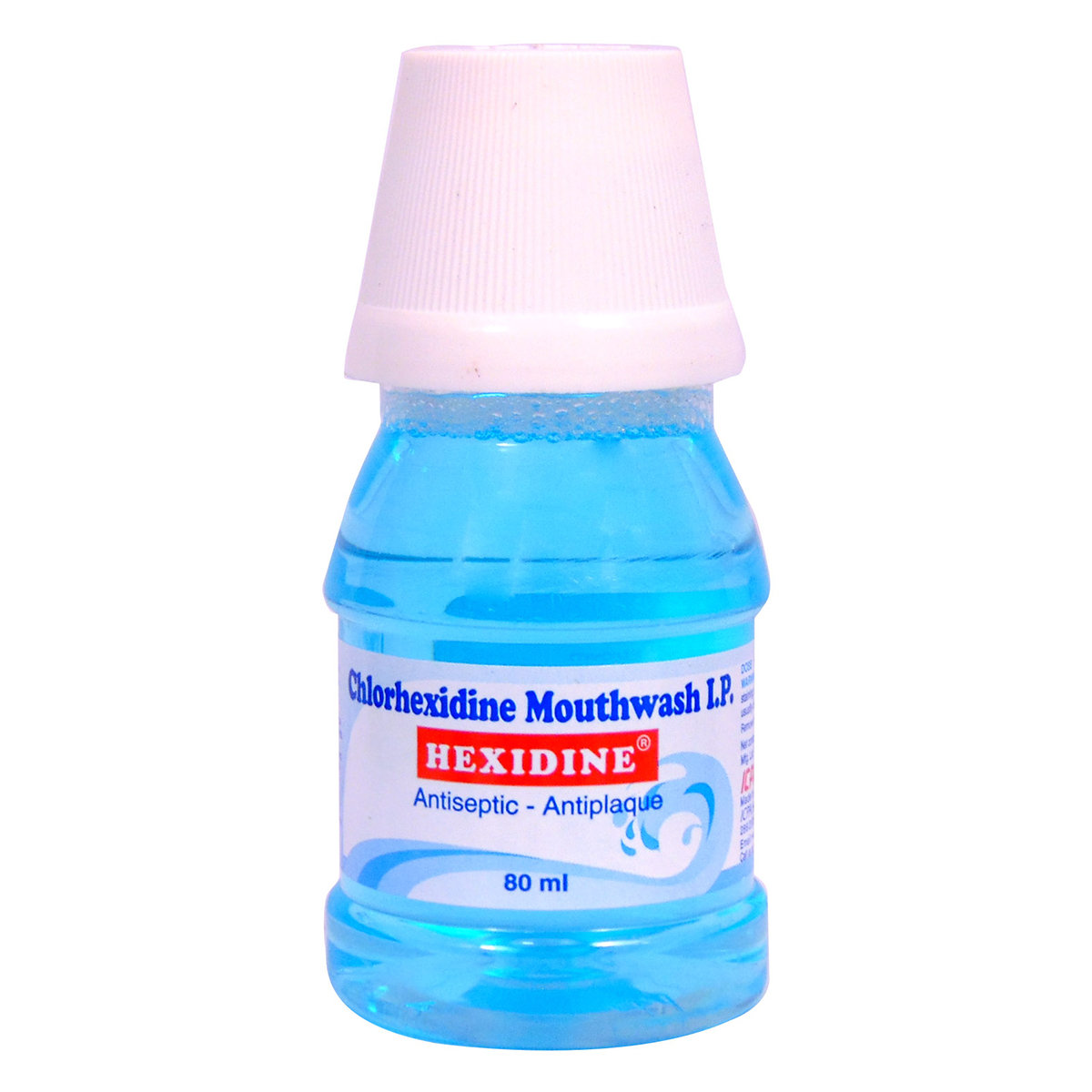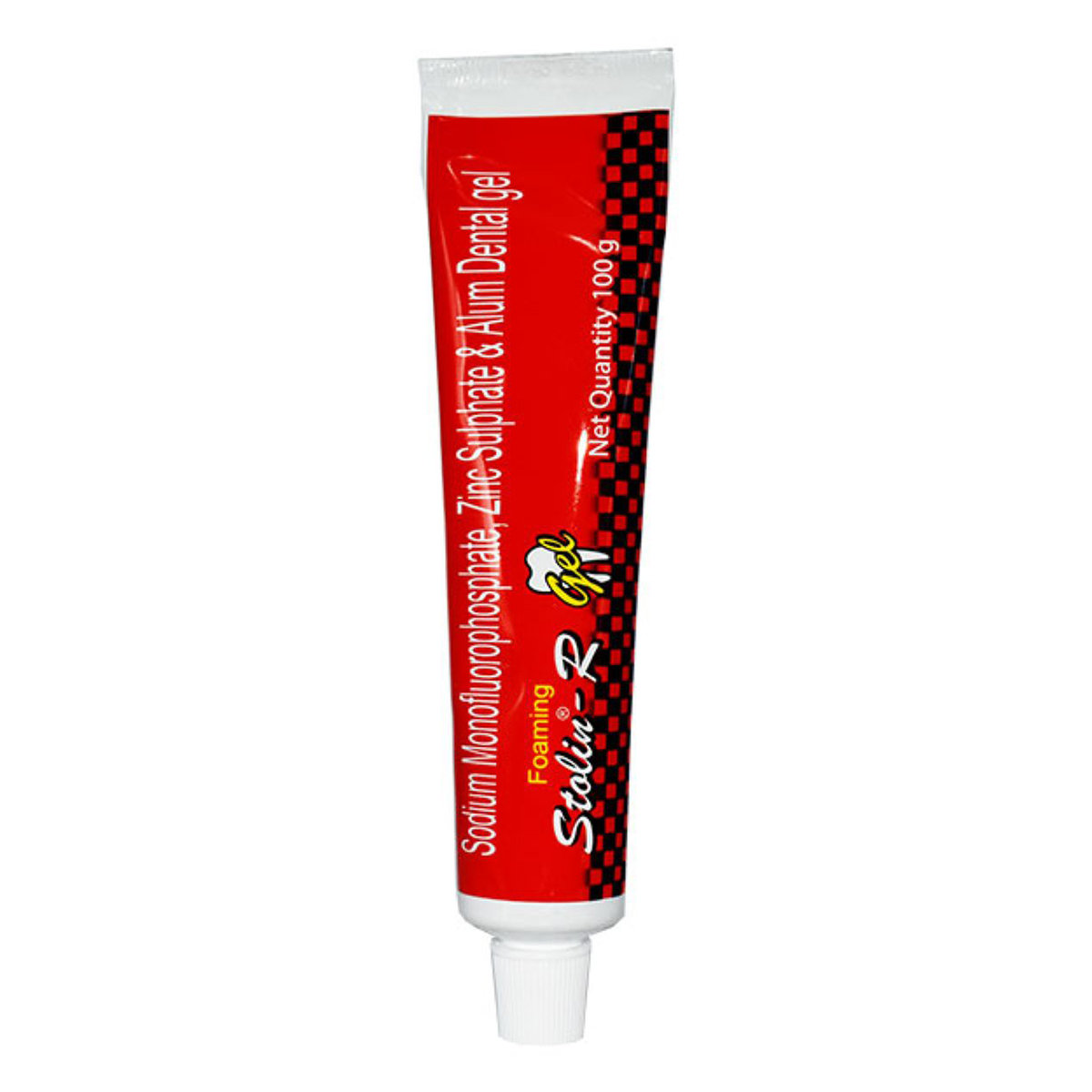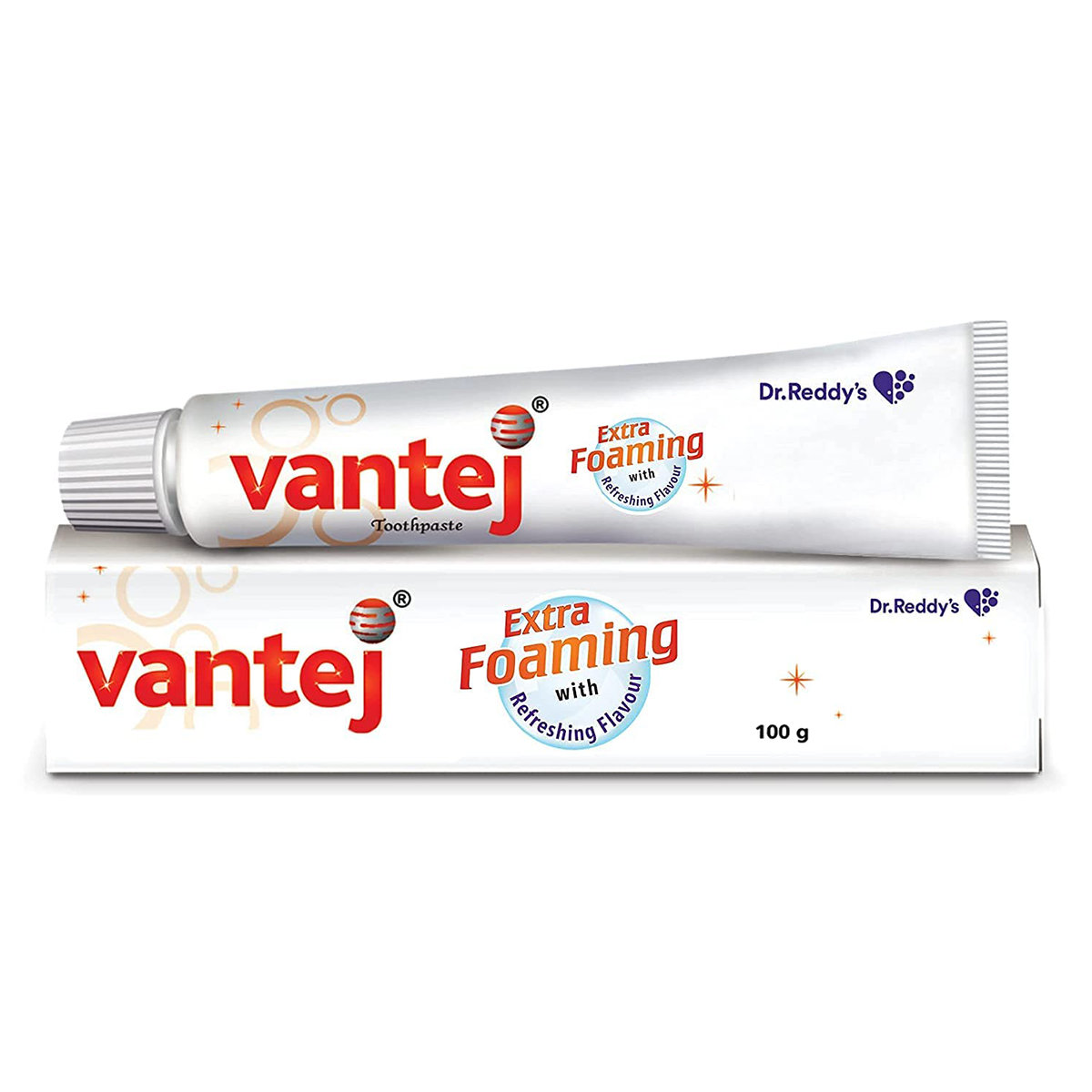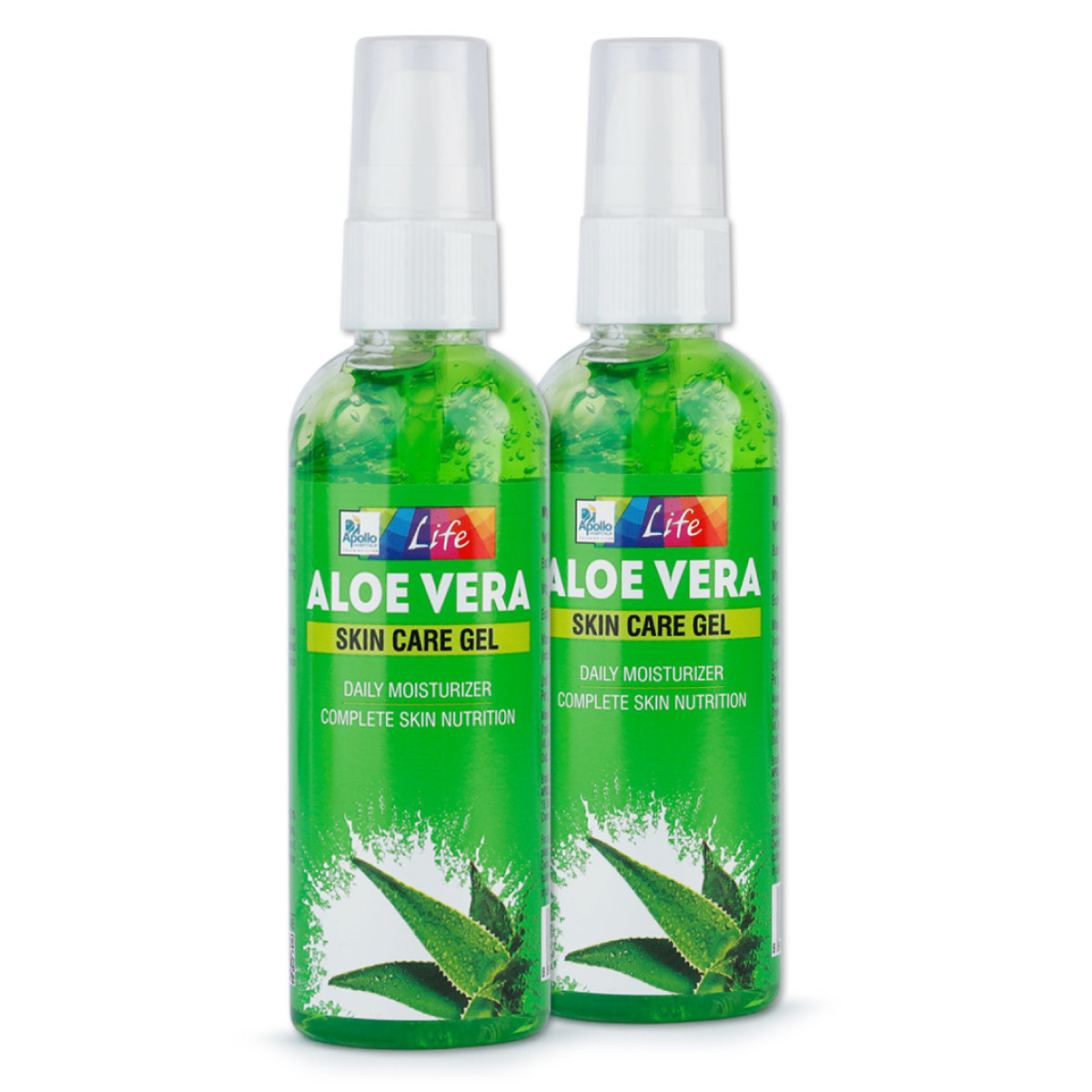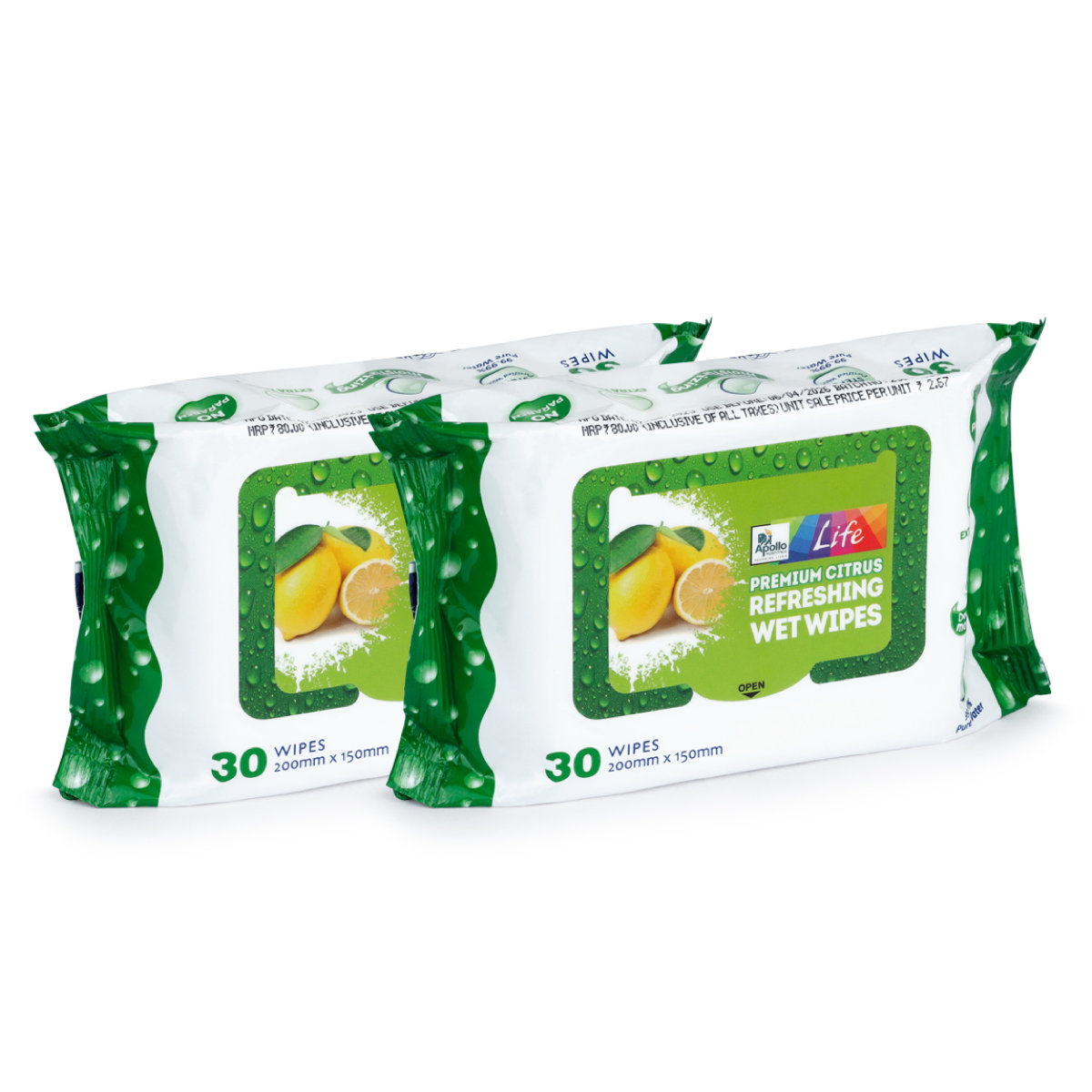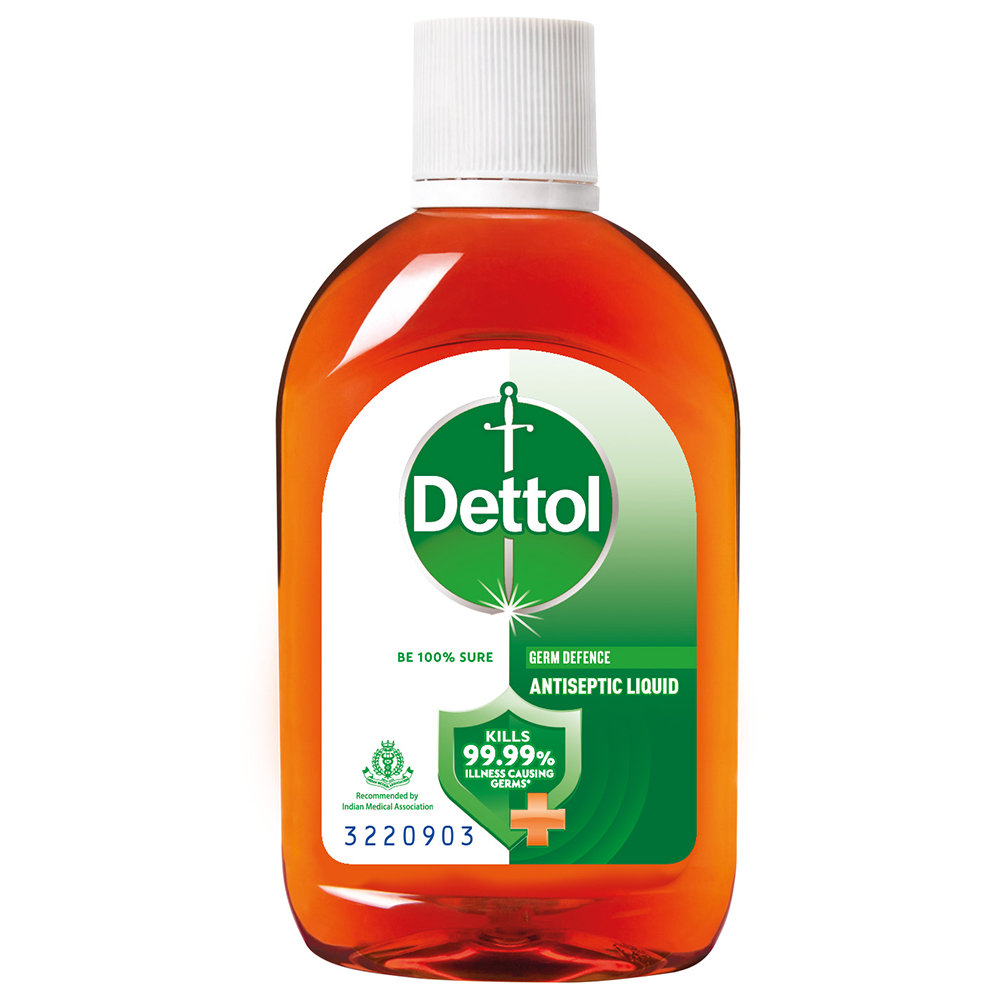Metrohex Gel 10 gm
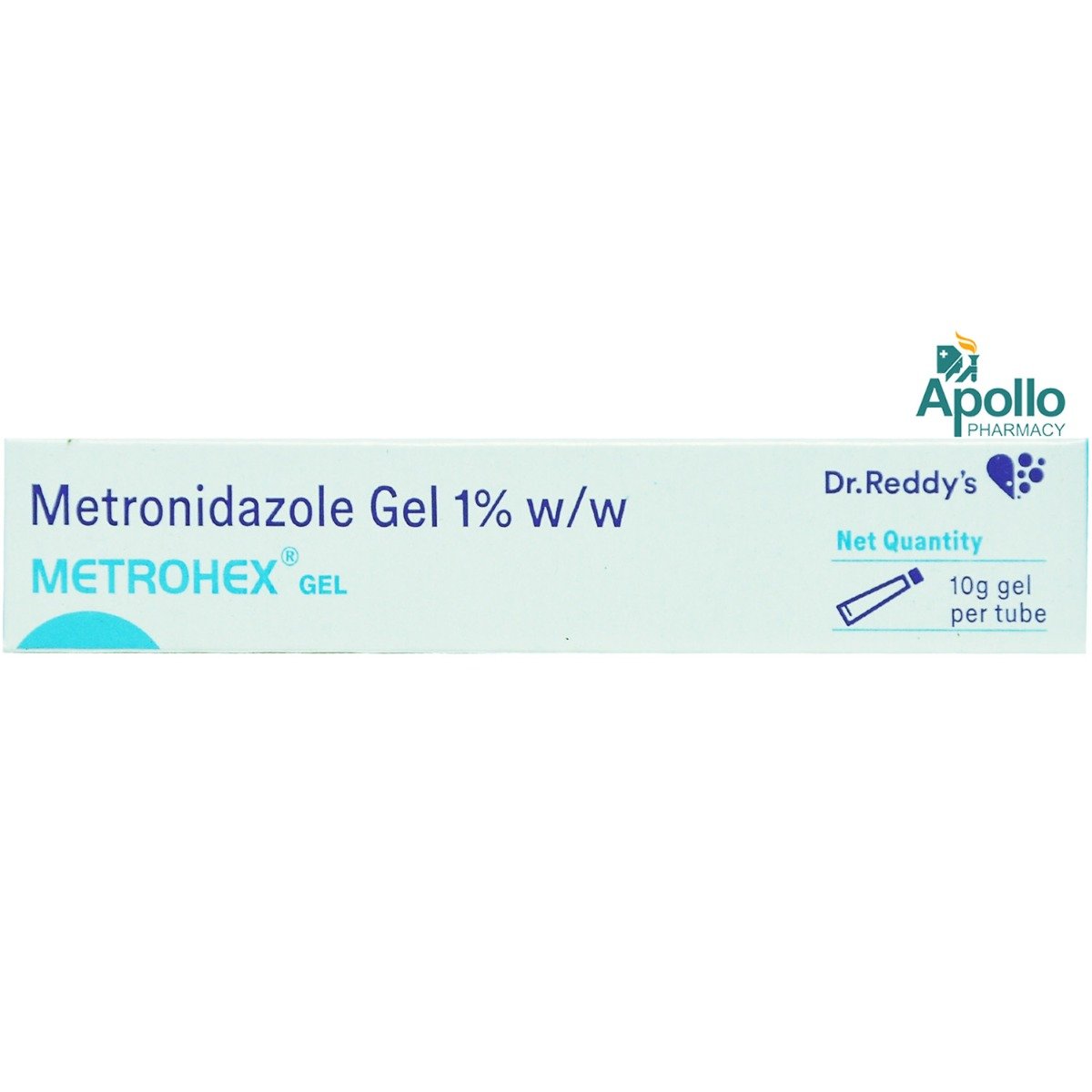
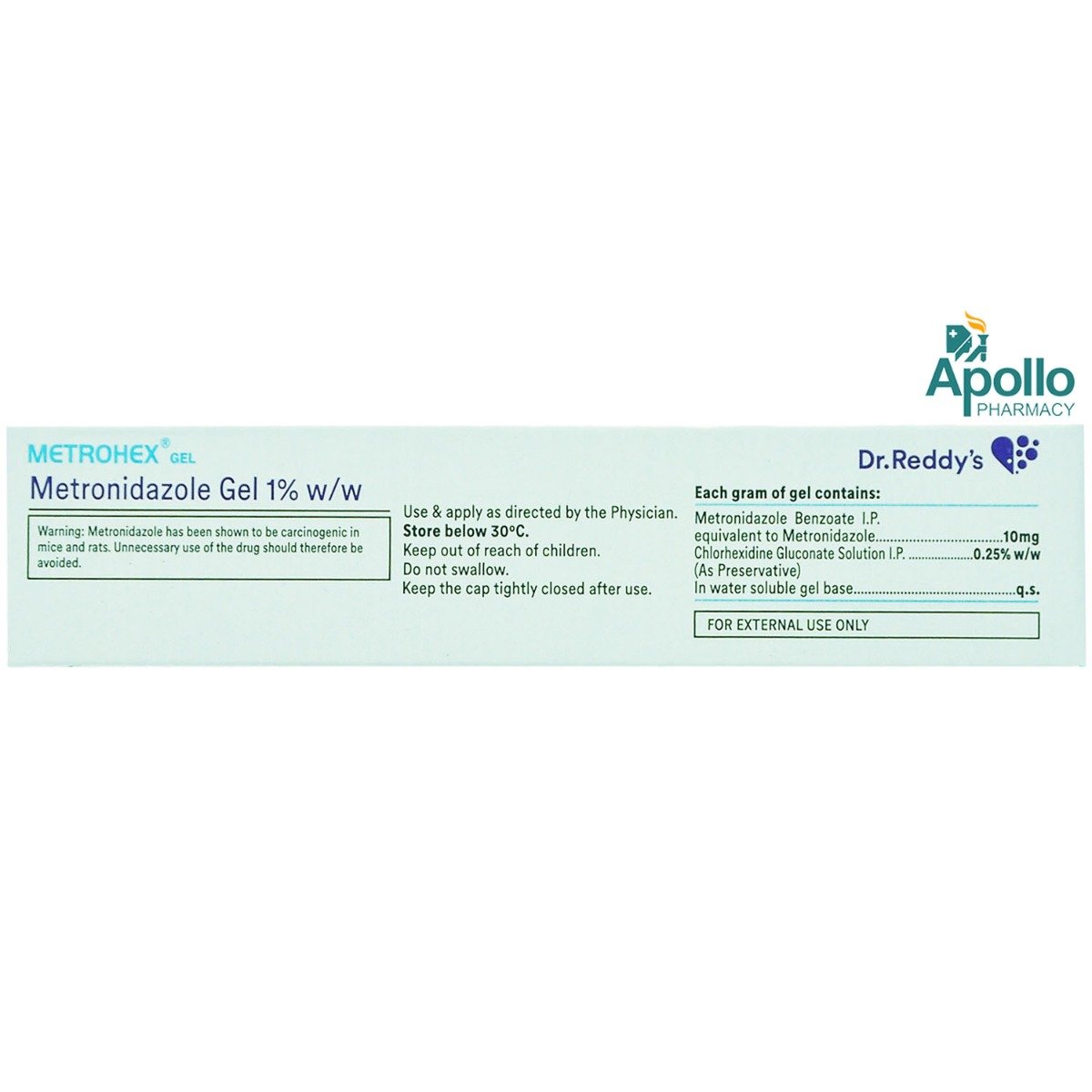
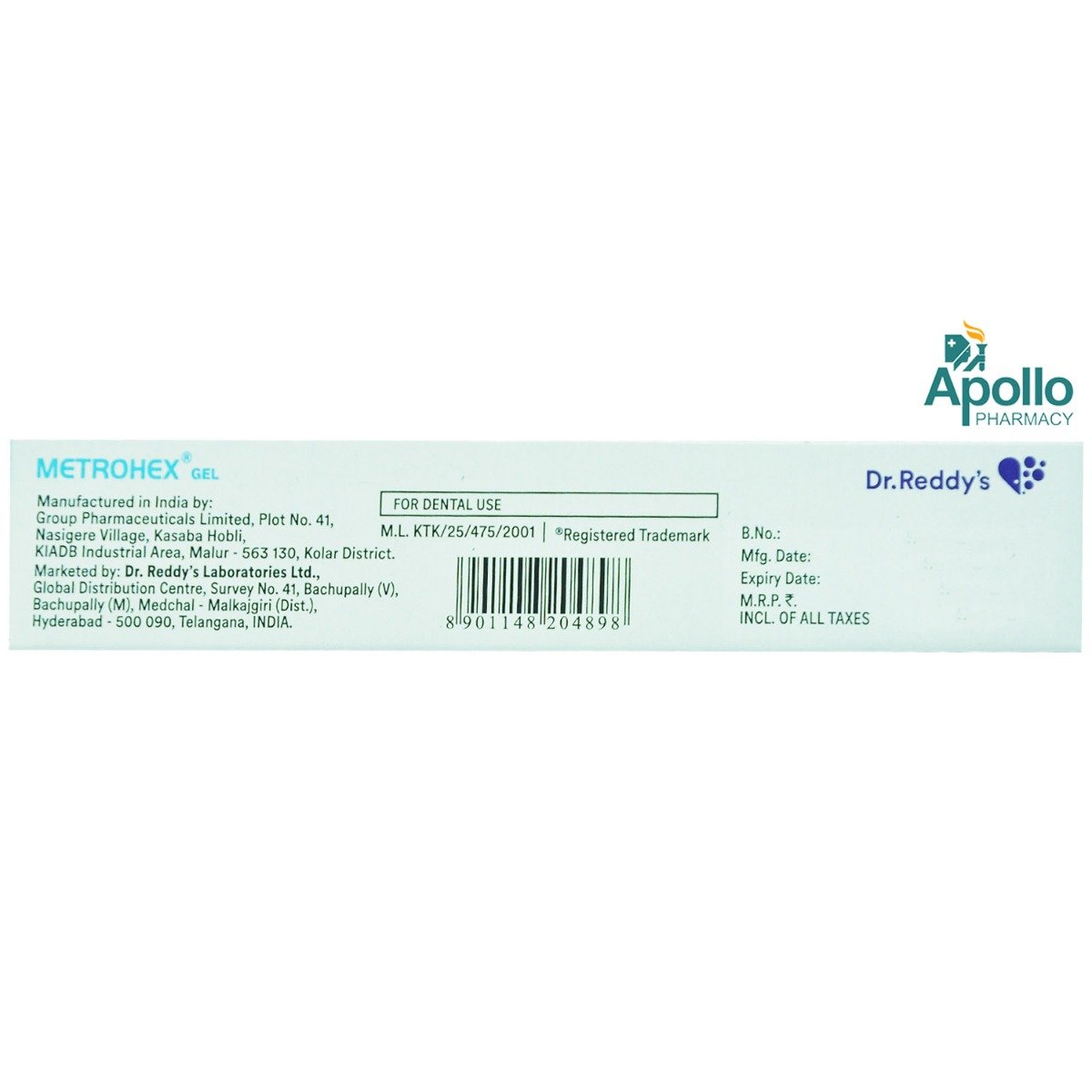
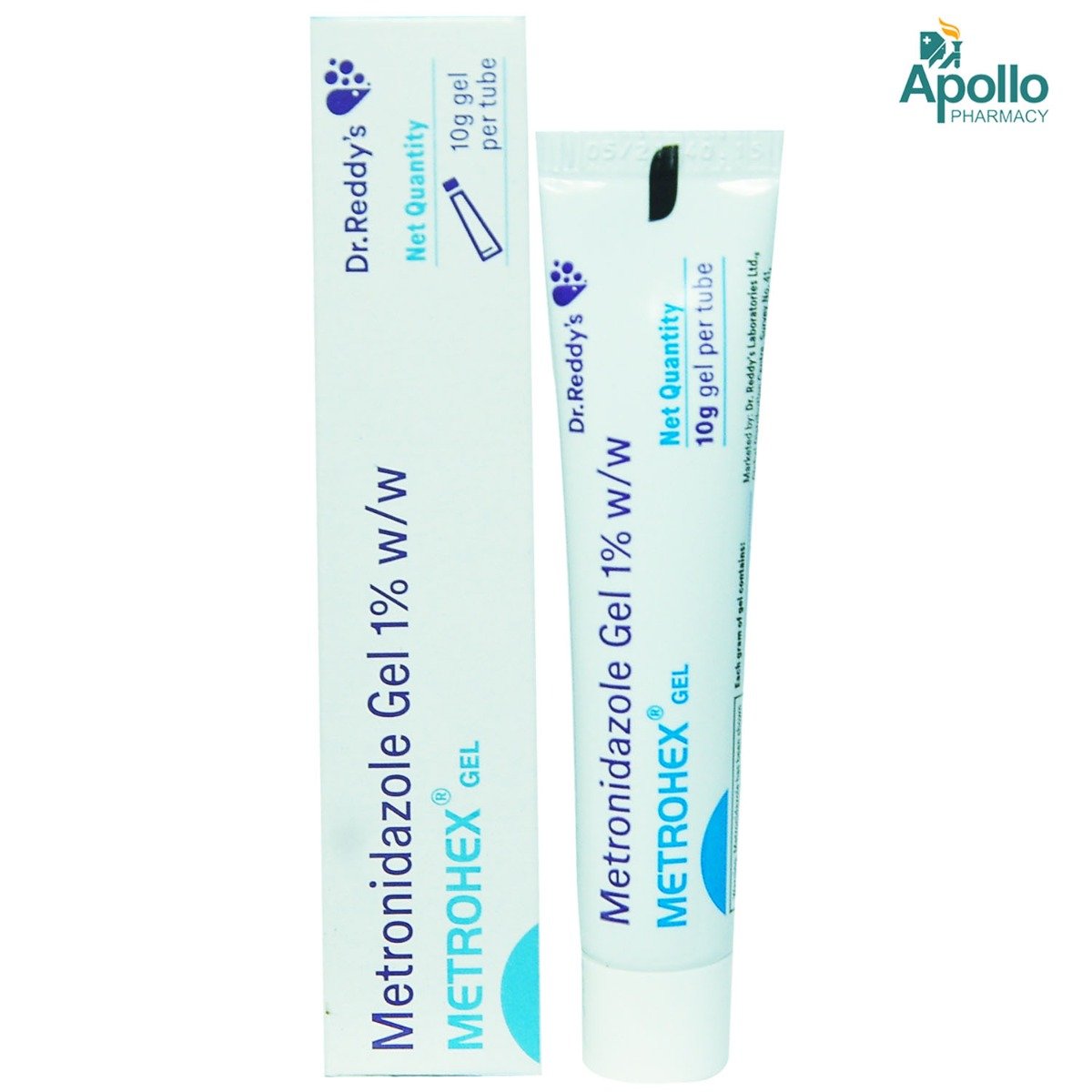
MRP ₹95
(Inclusive of all Taxes)
₹14.3 Cashback (15%)
Metrohex Gel is used to treat and prevent bacterial and parasitic infections, including blood, brain, bone, lung, stomach lining, pelvic area and genital infections, amoebiasis, gum and teeth infections, infected leg ulcers or pressure sores, stomach ulcers caused by Helicobacter pylori, urinary or genital infections caused by the Trichomonas parasite. Furthermore, it can also be used to treat infections that occur after childbirth or wound infections following surgery. It contains Metronidazole, which stops the growth of infection-causing bacteria or parasites. It may cause common side effects such as nausea, vomiting, upset stomach, loss of appetite, dry mouth, and a metallic taste. Before taking this medicine, you should tell your doctor if you are allergic to any of its components or if you are pregnant/breastfeeding, and about all the medications you are taking and any pre-existing medical conditions.
Know Your Delivery Time
Provide Delivery Location

Secure Payment

India's Most Trusted Pharmacy

Genuine Products
Composition :
Manufacturer/Marketer :
Consume Type :
Return Policy :
Expires on or after :
About Metrohex Gel
Metrohex Gel belongs to a group of medicines called Antimicrobials,' used to treat bacterial infections of the blood, brain, lung, bone, pelvic area, stomach lining, intestines, gum, teeth, following childbirth, or wound infection following an operation. It is also used to treat infected leg ulcers, pressure sores, stomach ulcers caused by Helicobacter pylori, urinary or genital infections caused by the Trichomonas parasite, amoebiasis (parasitic infection of the colon), and to prevent infections after surgery.
Metrohex Gel contains metronidazole, which works by preventing the production of proteins required by the harmful microorganisms for their survival. Thereby, Metrohex Gel treats bacterial and parasitic infections.
Your doctor will decide the dose and duration depending on the type of infection. Some common side effects of Metrohex Gel are nausea, vomiting, upset stomach, loss of appetite, dry mouth, and a metallic taste. Most of these side effects do not require medical attention and typically resolve on their own over time. However, if the side effects persist or worsen, please consult your doctor.
Do not take Metrohex Gel if you are allergic to any of its components. Metrohex Gel should not be used during pregnancy, especially during the first trimester and while breastfeeding. Do not drive or operate heavy machinery after taking Metrohex Gel, as it may cause dizziness and drowsiness. Avoid consumption of alcohol while on treatment with Metrohex Gel and for 48 hours after completing the course, as it may cause unpleasant side effects. Keep your doctor informed about your health condition and any medications you are taking to help rule out any potential side effects.
Uses of Metrohex Gel
Metrohex Gel is used to treat bacterial and protozoal infections. The detailed uses of Metrohex Gel are as follows:
- Bacterial infections: Metrohex Gel is widely used to treat infections caused by anaerobic bacteria, including those affecting the lungs, throat, bone and joints, skin and soft tissues, blood, brain, pelvic area, stomach lining, and intestines.
- Protozoal infections: Metrohex Gel is effective against protozoa such as Entamoeba histolytica (linked to amoebic dysentery); it inhibits protozoal reproduction. It is also used to treat urinary or genital infections caused by the Trichomonas parasite.
- Dental infections: Metrohex Gel is often prescribed in dentistry to address gum and oral cavity infections, particularly those caused by anaerobic bacteria. It may be used in combination with other antibiotics for enhanced effectiveness.
- Helicobacter Pylori Eradication: Metrohex Gel is used as part of a combination therapy to eradicate Helicobacter pylori, a bacterium associated with peptic ulcers. It is typically used alongside other antibiotics and proton pump inhibitors.
- Further Applications: Metrohex Gel is also used to treat bacterial infections following childbirth or wound infections after surgery.

Have a query?
Directions for Use
- Metrohex Gel can be taken with or without food. However, if it causes stomach discomfort, taking it with food may help.
- Take it exactly as prescribed by your doctor, who will determine the appropriate dose and timing based on the severity of your infection.
- Swallow it whole with a glass of water.
- Do not crush, chew, or break it.
Medicinal Benefits
Metrohex Gel contains metronidazole used to treat and prevent bacterial and parasitic infections, including blood, brain, bone, lung, stomach lining, pelvic area and genital infections, amoebiasis, gum and teeth infections, infected leg ulcers or pressure sores, stomach ulcers caused by Helicobacter pylori, urinary or genital infections caused by Trichomonas parasite. Furthermore, it can also be used to treat infections that occur after childbirth or wound infections that follow surgery. It works by preventing the production of proteins required by the harmful microorganisms for their survival. Thereby, Metrohex Gel helps treat bacterial and parasitic infections.
How Metrohex Gel Works
Storage
- Moisturize frequently with thick, broad-spectrum moisturizers containing sunscreen.
- Use warm water for short baths, and gentle cleansers.
- Pat dry and apply moisturizer immediately.
- Use a humidifier to add moisture to the air, and choose breathable fabrics like cotton and silk.
- Wash clothes with fragrance-free detergents to minimize irritation.
- After taking a shower or bath, apply a moisturizer to damp skin.
- Use petroleum jelly or other thick emollients.
- Use a hypoallergenic, fragrance-free moisturizer 2 to 3 times a day or as frequently as required.
- Exfoliate your skin gently using a pumice stone or slightly abrasive sponge.
- Do not scrub your skin.
- Avoid hot showers or baths. Instead take short, warm showers or baths.
- Use mild soap or skin cleansers with added moisturizer.
- Drink lots of water.
- Use sunscreen and wear protective clothing while going out to protect yourself from sun damage.
- Report the itching to your doctor immediately; they may need to change your medication or dosage.
- Use a cool, damp cloth on the itchy area to help soothe and calm the skin, reducing itching and inflammation.
- Keep your skin hydrated and healthy with gentle, fragrance-free moisturizers.
- Try not to scratch, as this can worsen the itching and irritate your skin.
- If your doctor prescribes, you can take oral medications or apply topical creams or ointments to help relieve itching.
- Track your itching symptoms and follow your doctor's guidance to adjust your treatment plan if needed. If the itching persists, consult your doctor for further advice.
- If you experience burning or stinging sensations and suspect that they may be related to medication, consult a doctor or healthcare expert to determine the cause and best course of treatment.
- Avoid harsh products, extreme temperatures, and other potential irritants that may exacerbate burning or stinging.
- Your healthcare professional may recommend applying a soothing or protective agent, such as a cream, gel, or ointment, to help alleviate burning or stinging.
- Follow your healthcare professional's advice on how to care for the affected area, as gentle cleaning and care instructions may vary depending on the location and severity of the burning or stinging.
- Schedule follow-up appointments with your doctor to monitor your symptoms and adjust your treatment plan as needed. If the burning or irritation persists or worsens, seek medical attention.
- Clean the affected area with soap and water.
- Apply a cold compress on the affected area for relief.
- Avoid scratching the affected area.
- Inform your doctor about the reaction so they can adjust your treatment plan and suggest alternative medications.
- Get immediate medical attention if symptoms persist or worsen.
- Consult a healthcare professional to diagnose the skin infection and receive appropriate treatment.
- Follow your doctor's instructions for treatments including creams, ointments, or antibiotics to stop the spread of germs.
- Avoid scratching to help stop further infection and irritation.
- Particularly after handling the affected region, wash your hands frequently.
- To stop the spreading of infection, avoid sharing personal items including towels, clothes, and makeup.
- Keep your skin moist to avoid dryness and irritations.
- If your symptoms worsen or don't change, let your doctor know as they provide medical attention.
- Tell your doctor about the excessive oiliness so they can adjust your medication or offer advice.
- Your doctor may recommend alternative medications with fewer side effects on oil production.
- Wash your skin twice a day with a gentle cleanser to remove excess oil and dirt.
- Choose oil-free, non-comedogenic products to prevent clogged pores.
- Use clay masks to absorb excess oil and cleanse the skin.
What if I have taken an overdose of Metrohex Gel
Drug Warnings
Do not take Metrohex Gel if you are allergic to any of its components. Metrohex Gel should not be used during pregnancy, especially during the first trimester. Please inform your doctor if you are pregnant or planning to become pregnant. Avoid breastfeeding while taking Metrohex Gel and for 12-24 hours after completing the course. Do not drive or operate heavy machinery after taking Metrohex Gel, as it may cause dizziness and drowsiness. Inform your doctor before taking Metrohex Gel if you have any medical conditions, such as Clostridium difficile-associated diarrhoea, bone marrow depression/low blood count, CNS disorder, epilepsy, porphyria (blood disorder), peripheral neuropathy, or heart, liver, or kidney problems.
Drug-Drug Interactions
Drug-Drug Interactions
Login/Sign Up
Drug-Food Interactions
Drug-Food Interactions
Login/Sign Up
Diet & Lifestyle Advise
- It would be best to take probiotics after taking the full course of Metrohex Gel to restore healthy bacteria in the intestine that may have been killed. Taking probiotics after antibiotic treatment can reduce the risk of antibiotic-associated diarrhoea. Certain fermented foods, such as yoghurt, cheese, sauerkraut, and kimchi, can help restore the intestines' good bacteria.
- Include more fibre-enriched food in your diet, as it can be easily digested by gut bacteria, which helps stimulate their growth. Whole grains, such as whole-grain bread and brown rice, should be included in the diet.
- Avoid intake of alcoholic beverages with Metrohex Gel as it can make you dehydrated and affect your sleep. This can make it harder for your body to help Metrohex Gel fight off infections.
- If you have diarrhoea, drink appropriate amounts of fluids to avoid dehydration.
Habit Forming
Therapeutic Class
Metrohex Gel Substitute

Alcohol
Unsafe
You are recommended not to consume alcohol while on treatment with Metrohex Gel and for 48 hours after completing the course to avoid unpleasant side effects such as nausea, vomiting, stomach pain, palpitations, headache, and hot flushes.
Pregnancy
Unsafe
Metrohex Gel should not be used during pregnancy, especially during the first trimester. Inform your doctor if you are pregnant or planning to become pregnant.
Breast Feeding
Unsafe
Metrohex Gel may pass into breast milk. Avoid breastfeeding while taking Metrohex Gel and for 12-24 hours after completing the course.
Driving
Caution
Metrohex Gel may cause dizziness and drowsiness; therefore, avoid driving or operating machinery unless you are alert.
Liver
Caution
Metrohex Gel should be taken with caution, especially if you have a history of liver diseases/conditions. Your doctor may adjust your dose depending on your liver condition.
Kidney
Caution
Metrohex Gel should be taken with caution, especially if you have a history of kidney diseases/conditions. Your doctor may adjust your dose depending on your kidney condition.
Children
Safe if prescribed
Metrohex Gel should be given to children only if prescribed by a doctor. Your doctor may adjust the dose as per the age of your child.
FAQs
Metrohex Gel is used to treat and prevent bacterial and parasitic infections, including blood, brain, bone, lung, stomach lining, pelvic area and genital infections, amoebiasis, gum and teeth infections, infected leg ulcers or pressure sores, stomach ulcers caused by Helicobacter pylori, urinary or genital infections caused by the Trichomonas parasite. Furthermore, it can also be used to treat infections that occur after childbirth or wound infections following surgery.
Metrohex Gel works by preventing the production of proteins required by harmful microorganisms for their survival. Thereby, Metrohex Gel helps treat and prevent bacterial and parasitic infections.
No. You should complete the full course of Metrohex Gel as prescribed by your doctor. Consult your doctor if you experience any difficulty while taking Metrohex Gel.
No. Metrohex Gel is an antimicrobial medicine that acts only against bacterial infections, not against viral infections such as the common cold and flu.
If you miss a dose of Metrohex Gel, take it as soon as you remember. However, if it is almost time for the next dose, skip the missed dose and follow your regular schedule. Never take a double dose to make up for the missed one.
Metrohex Gel may cause jaundice in a rare case. Please consult your doctor immediately if you notice yellowing of the skin and eyes.
No. Do not stop taking Metrohex Gel until the course is completed, as prescribed by the doctor. If you stop taking it, your problem may reoccur. If you experience any difficulty or adverse events that persist while taking it, report them to your doctor and seek appropriate treatment.
Metrohex Gel may also be used with other medications to treat certain stomach/intestinal ulcers caused by a bacteria (H. pylori). Even so, it can only be used if advised by a doctor.
Do not take more than the prescribed dose of Metrohex Gel, as it may cause an overdose. The symptoms of an overdose include nausea, vomiting, seizures (fits), loss of muscle coordination, and numbness, burning, pain, or tingling in the hands or feet. If you suspect you have taken an overdose or notice signs of overdose, please consult a doctor immediately.
If the symptoms do not improve within a few days after starting this medicine or if they worsen, consult your doctor. They will reassess the condition and provide guidance on appropriate treatment.
Metrohex Gel may interact with certain medications. So, do not use any other medications with Metrohex Gel unless recommended by the doctor. Your doctor will check for potential interactions and prescribe you if necessary.
Antibiotics like Metrohex Gel may reduce the vaccine's activity. To ensure an adequate vaccine response, vaccination should be administered at least 14 days after completing treatment with Metrohex Gel or 10 days before starting therapy with Metrohex Gel. Talk to your doctor if you have any questions or concerns.
Let your doctor know about your child’s medical history and ongoing medications before prescribing Metrohex Gel.
Yes, it is normal. Metrohex Gel can cause urine discolouration. This is harmless and should resolve on its own once your child stops taking the medication.
Metrohex Gel may interfere with some drugs. Always check with a doctor before giving any medication, especially if your child is feverish. The doctor will advise the best course of treatment for your child.
To ensure the medication's effectiveness and progress of the medical condition, the doctor may perform certain lab tests, such as a complete blood count (CBC), liver function test (LFT), and kidney function test (KFT) if necessary.
Common side effects of Metrohex Gel may include nausea, vomiting, upset stomach, loss of appetite, dry mouth, and a metallic taste. Most of these side effects do not require medical attention and will gradually resolve over time. However, if the side effects persist or worsen, please consult your doctor.
Country of origin
Manufacturer/Marketer address
Customers Also Bought
Disclaimer
Author Details
We provide you with authentic, trustworthy and relevant information
Reference
- https://www.drugs.com/metronidazole.html
- https://medlineplus.gov/druginfo/meds/a689011.html
- https://dailymed.nlm.nih.gov/dailymed/lookup.cfm?setid=93e4f174-4fe0-4cfd-a0cf-d0963e082107
- https://labeling.pfizer.com/showlabeling.aspx?id=570
- https://www.medsafe.govt.nz/Consumers/cmi/m/Metrogyl.pdf
- https://webmedpharmacy.co.uk/media/pil/sti/PIL_metronidazole_400mg_tabs.pdf
- https://www.nhs.uk/medicines/metronidazole/about-metronidazole/
- https://www.medicines.org.uk/emc/files/pil.5882.pdf
- https://www.drugs.com/drug-interactions/metronidazole-index.html?filter=3
Buy best Dentistry products by
Group Pharmaceuticals Ltd
Indoco Remedies Ltd
Dr Reddy's Laboratories Ltd
Abbott India Ltd
Vasu Organics Pvt Ltd
Icpa Health Products Ltd
Nextgen Healthcare
Leeford Healthcare Ltd
Mankind Pharma Pvt Ltd
Morepen Laboratories Ltd
Stedman Pharmaceuticals Pvt Ltd
Lupin Ltd
Macleods Pharmaceuticals Ltd
Micro Labs Ltd
Sandika Pharmaceuticals Pvt Ltd
West Coast Pharmaceuticals Pvt Ltd
Atopic laboratories Pvt Ltd
Cipla Ltd
Elder Pharmaceuticals Ltd
Entod Pharmaceuticals Ltd
Galpha Laboratories Ltd
Glenmark Pharmaceuticals Ltd
Global Dent Aids Pvt Ltd
Impotel Global Healthcare Llp
Intas Pharmaceuticals Ltd
J B Chemicals & Pharmaceuticals Ltd
Med Manor Organics Pvt Ltd
Medishri Healthcare Pvt Ltd
Om Biotec
Pharmadent Remedies Pvt Ltd
Qualimed Bioscience
Agrawal Drugs Pvt Ltd
Ajanta Pharma Ltd
Alkem Laboratories Ltd
Anchal Life Science Pvt Ltd
Aureate Healthcare
Chem Med Pharmaceuticals
Dentigrity Formulations Llp
Dey's Medical Stores (Mfg) Ltd
Frimline Pvt Ltd
Idem Health Products Pvt Ltd
Ipca Health Products Ltd
Lincoln Pharmaceuticals Ltd
Purexa Global Pvt Ltd
Raptakos Brett & Co Ltd
Sky Ora Care
Smart Laboratories Pvt Ltd
Stanbac Life Sciences
U & V Cancure Pvt Ltd
Unimarck Pharma India Ltd
Welgenic Pharma
Wings Pharmacuticals Pvt Ltd
Wockhardt Ltd
Across Laboratories Pvt Ltd
Aimcad Biotech Pvt Ltd
Apex Laboratories Pvt Ltd
Ben Hadded Pharma Pvt Ltd
Bennet Pharmaceuticals Ltd
Best Biotech
Biozinik Healthcare Pvt Ltd
Cubit Healthcare
Daris Biocare
Dupen Laboratories Pvt Ltd
Dwd Pharmaceuticals Ltd
Elder Projects Ltd
Enrico Pharmaceuticals
Fitwel Pharmaceuticals
Flagship Biotech International Pvt Ltd
Fortel Life Sciences
Fourrts India Laboratories Pvt Ltd
Geno Pharmaceuticals Pvt Ltd
Genspec Lifesciences
German Remedies Ltd
Graciera Pharmaceuticals Llp
Heptagon Life Sciences Pvt Ltd
Icpa Lab
Iifa Healthcare
Intra Life Pvt Ltd
Ipca Laboratories Ltd
Jupiter Pharmaceuticals Ltd
Jv Health Care
Karvia Laboratories Pvt Ltd
MRG Pharmaceuticals
Magnum Life Sciences Pvt Ltd
Makshi Healthcare Pvt Ltd
Medgen Drugs And Laboratories Pvt Ltd
Nanz Med Science Pharma Pvt Ltd
Nexgen Healthcare Pvt Ltd
Nri Vision Care India Ltd
NuLife Pharmaceuticals
Oncobiotek Drugs Pvt Ltd
Palsons Derma Pvt Ltd
Panacea Biotec Ltd
Pariza Healthcare
Pharmakon Life Sciences
Scott Edil Pharmacia Ltd
Solace Biotech Ltd
Somatico Pharmaceuticals Ltd
Suncare Formulations Pvt Ltd
Symbiosis Pharmaceuticals Pvt Ltd



